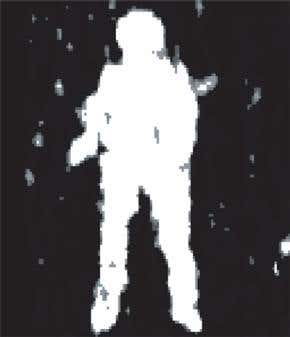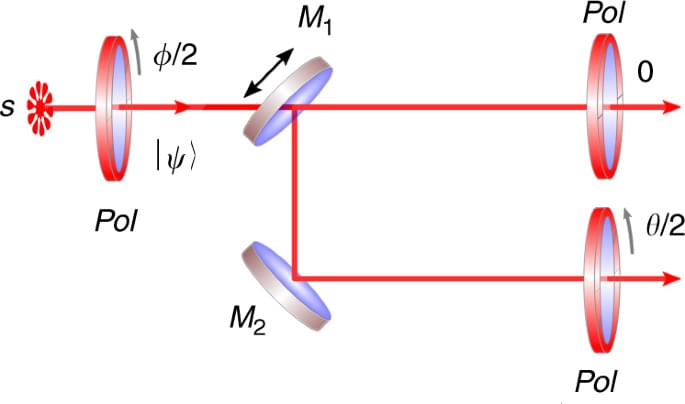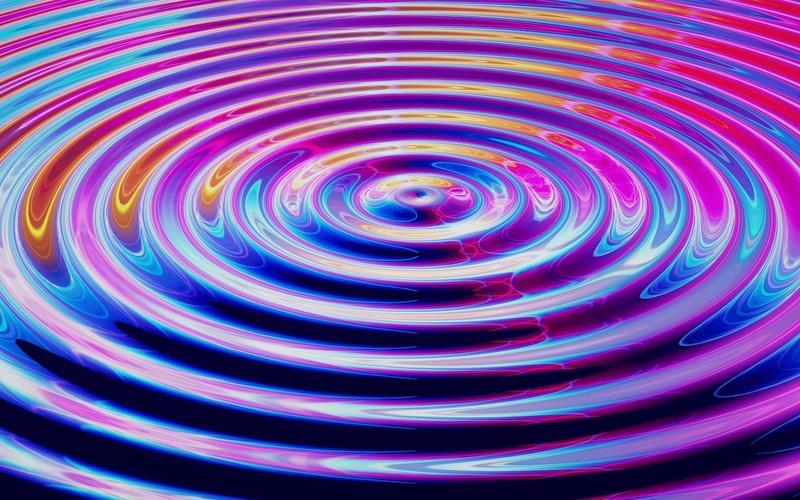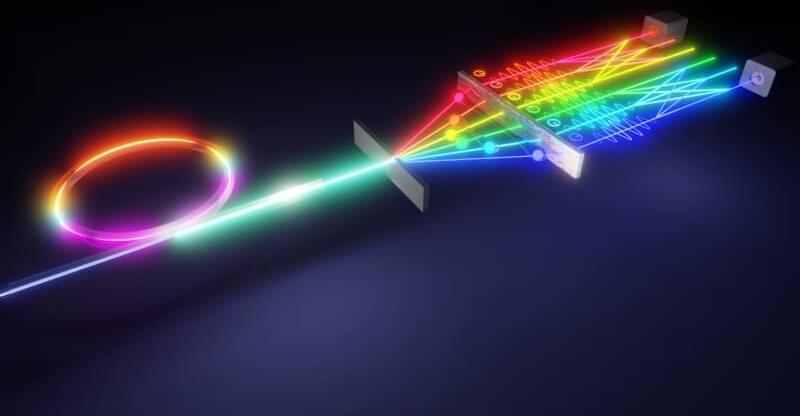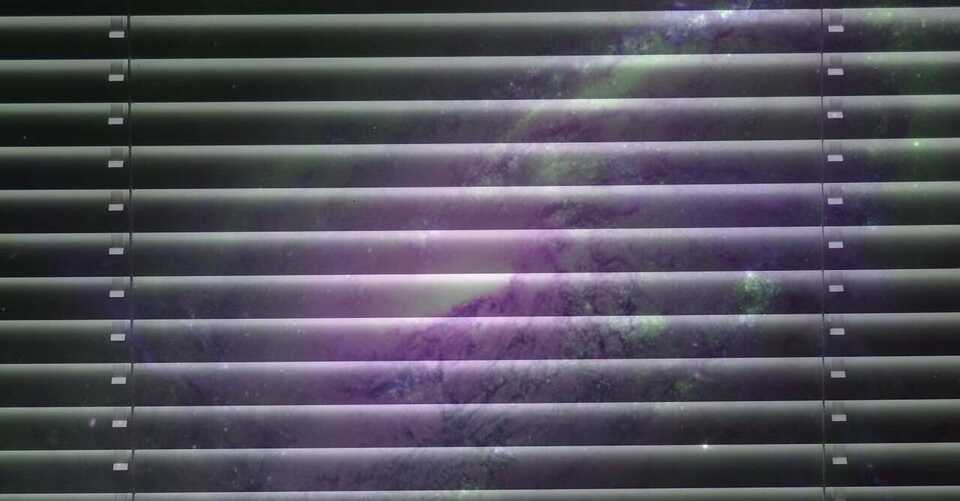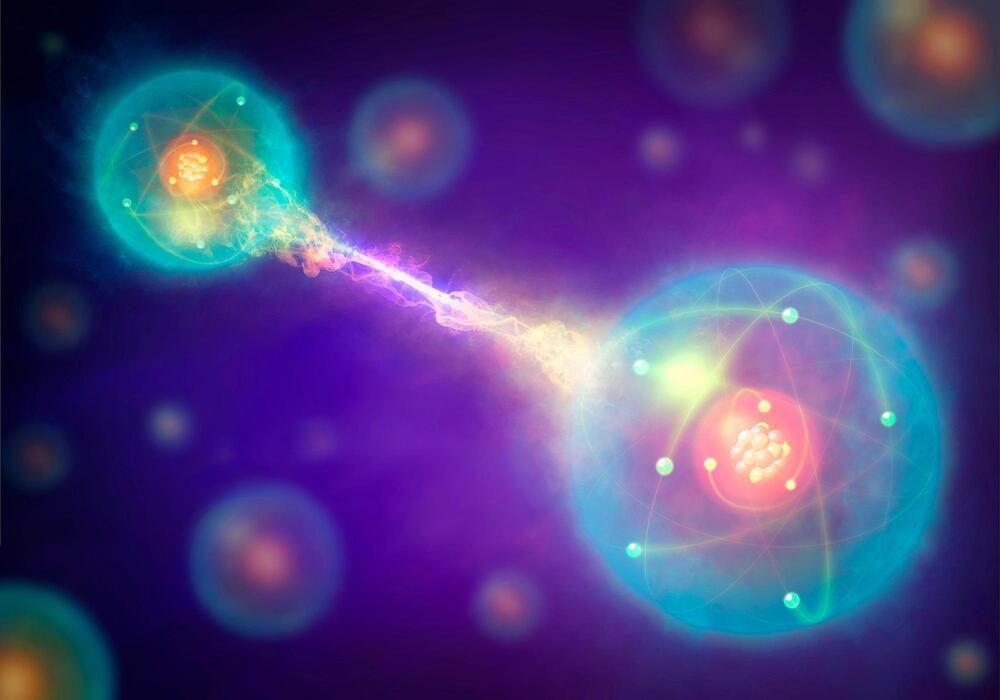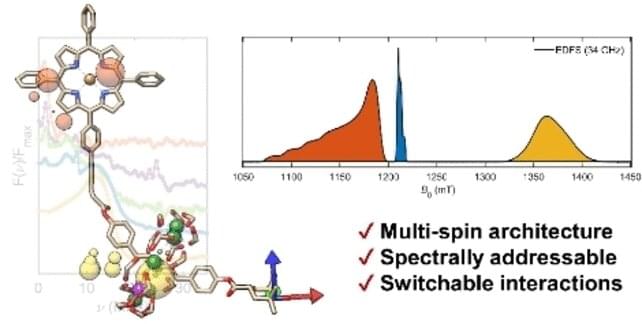
Molecules could make useful systems for quantum computers, but they must contain individually addressable, interacting quantum bit centers. In the journal Angewandte Chemie, a team of researchers has now presented a molecular model with three different coupled qubit centers. As each center is spectroscopically addressable, quantum information processing (QIP) algorithms could be developed for this molecular multi-qubit system for the first time, the team says.
Computers compute using bits, while quantum computers use quantum bits (or qubits for short). While a conventional bit can only represent 0 or 1, a qubit can store two states at the same time. These superimposed states mean that a quantum computer can carry out parallel calculations, and if it uses a number of qubits, it has the potential to be much faster than a standard computer.
However, in order for the quantum computer to perform these calculations, it must be able to evaluate and manipulate the multi-qubit information. The research teams of Alice Bowen and Richard Winpenny, University of Manchester, UK, and their colleagues have now produced a molecular model system with several separate qubit units, which can be spectroscopically detected and the states of which can be switched by interacting with one another.


